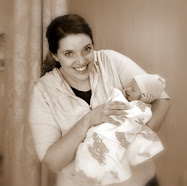By: by Pinky McKay
You may have heard the term ‘accidental parenting’ which implies that you, the parents, have inadvertently caused (or will cause) your baby to have sleeping difficulties if you encourage ‘bad habits’ such as letting your baby fall asleep in your arms or not following a strict regime of one sort or another.
The truth is, there is no accident about how you feel when your baby calms and dozes in your arms, opening heavy eyelids to meet your gaze then perhaps giving a tiny smile before his eyes flutter shut again with delicate lashes resting against little pink cheeks, his warm body snuggled next to your own. Nor is it a sign of weakness or indulgence on your part that you can’t resist your baby’s cries to be soothed to sleep. Rather, it is due to what scientists call the ‘chemistry of attachment’.
This is a massive hormonal upheaval that begins during pregnancy, ensuring that you and your baby are chemically primed to fall in love when you meet each other face-to-face or rather, skin-to-skin, at birth. It is nature’s insurance that your baby will signal for exactly the care she needs to grow and thrive and that your strong connection with her will help you understand and meet these needs as she adapts to the world outside the womb.
During the last trimester of pregnancy your body brews a cocktail of hormones, and your pituitary gland, which produces this ‘mummy margarita’, doubles in size and remains enlarged for up to six months postpartum. This means that for as long as six months after your baby is born, your emotional mindset will be irresistibly affected by shifting levels of hormones. This powerful hormonal hangover has such universally intense effects on mothers inner lives that it is documented by researchers under a variety of labels including ‘maternal pre-occupation’ and ‘motherhood mindset’. This more intuitive mindset can be quite at odds with our modern lifestyles and often comes as a shock to women who have previously been in a more goal-oriented and solution-focused space prior to having a baby. Now, it seems that control is out the window and logic has left the building, as the skills that used to keep things neat and tidy (literally) are no longer relevant. This is why the baby instruction manual that advised an efficient program of sleep management seemed so sensible while you were pregnant, but now makes you feel like a failure as neither your baby nor you seem able to slot neatly into the prescribed timetable.
If you can appreciate this new, responsive state as nature’s preparation for creating a synchrony between you and the instinctual world of your newborn, you will understand why there is such a struggle between the logic of sleep training advice and your urge to respond to your baby.
“I was thinking about what keeps you going in the early days, especially the ability to function on barely any sleep, and I think it’s love. The love you feel for your baby, and the need to nurture the little one is what keeps you going and gives you this almost superhuman ability to be patient and gentle and strong through those difficult times. Of course everyone copes differently but I think for me it was the love that really kept me going on an otherwise empty tank. I am so in love with Luna. It is the purest, most all-encompassing, most divine feeling – she is such a delight. When she wakes up and I hear her little voice it means I have to stop whatever it is I’m doing, no matter how important, and see to her. I think ‘Yay! I get to hold my precious darling again!’ and I can’t wait to go in and pick her up and cuddle her.”—Alice
Two of the major players in this magical baby love potion are prolactin, a hormone that promotes milk production and is often referred to as ‘the mothering hormone’ because of its calming effect that is said to make you more responsive to your baby, and oxytocin, also known as the ‘love hormone’. Oxytocin encourages feelings of caring and sensitivity to others and helps us to recognise non-verbal cues more readily. It is released during social contact as well as during love-making, but the release of oxytocin is especially pronounced with skin-to-skin contact. Oxytocin itself is part of a complex hormonal balance. A sudden release creates an urge towards loving that can be directed in different ways depending on the presence of other hormones. For example, with a high level of prolactin, the urge to love is directed towards your baby.
Breastfeeding is a powerful enhancer of the effects of these love hormones, which are released by both mothers and babies, who produce their own oxytocin in response to nursing. However, physical contact with your baby will also stimulate the release of oxytocin, so if you are bottle-feeding you can chemically boost the bond with your baby if you ‘bottle nurse’ with cuddles and skin contact, rather than prop him up to feed (something you should never do, for safety reasons) or hand him to others.
Fathers, too, can succumb to the influence of these love drugs of family (not just baby) bonding (and you thought you were the ‘voice of reason’, didn’t you?). Men’s bodies are instinctively programmed to respond to their partners’ pheromones, which are steroid hormones made in our skin that emit barely detectable odours. Through closeness with your baby’s mother (and signals from her pheromones), your own oxytocin and prolactin levels rise toward the end of your partner’s pregnancy, and then, when your baby is born, an even greater surge of these hormones occurs when you spend lots of time holding your baby. And so a self-perpetuating cycle begins, close contact with your baby releases your own oxytocin and prolactin and encourages you to become more involved with your child.
Whichever parent you are and whether you are an adoptive parent or a same sex partner, the more you connect with your baby through touch, eye contact, smell and talking, the stronger your connection will be and the more difficult you will find it to ignore your baby’s signals.
And this is exactly as nature intended.
This is an edited extract from ‘Sleeping Like a Baby’ by Pinky McKay (Penguin). Pinky McKay is an international board certified lactation consultant, infant massage instructor, mother of five and the author of ‘Parenting by Heart’, 100 Ways to Calm the Crying, Sleeping Like a Baby, Toddler Tactics and her baby massage DVD, Gentle Beginnings. Based in Melbourne, Pinky regularly holds workshops and is available for mothers groups and conferences. See her website at http://www.pinkymckay.com.au.
Saturday, January 2, 2010
Subscribe to:
Post Comments (Atom)



No comments:
Post a Comment